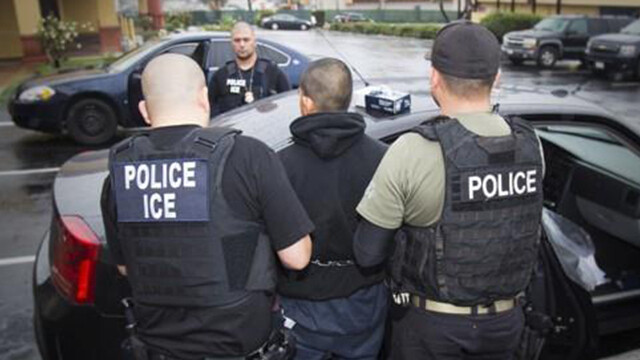
U.S. Immigration and Customs Enforcement (ICE), in collaboration with state law enforcement, recently apprehended approximately 780 immigrants in Florida, as reported by The New York Times on April 26th (local time).
According to an anonymous ICE official cited by the NYT, the operation, which commenced on April 21st, specifically targeted undocumented immigrants with final deportation orders. This enforcement action marks a significant move under the Trump administration's increasing emphasis on removing individuals residing in the U.S. without legal status.
Tessa Petit, the executive director of the Florida Immigrant Coalition, voiced strong opposition to the arrests. "This will tear families apart," she stated, highlighting the stark contrast between the current climate and Florida's historical reputation as a welcoming state for immigrants. Petit further suggested that given the scale of the operation, it is likely that a considerable number of those detained may have been residing legally in the U.S. and possess no criminal record.
The recent operation appears to be part of a broader trend of heightened rhetoric and enforcement measures targeting undocumented immigrants. Officials within the Trump administration have increasingly issued warnings for these individuals to leave the country.
Adding to this sentiment, Homeland Security Secretary Kristi Noem released a statement on April 21st, directly addressing those living in the U.S. without authorization. "President Trump and I have a clear message to those in our country illegally: LEAVE NOW," the statement read. "If you do not self-deport, we will hunt you down, arrest you and deport you."
This operation in Florida is reportedly one of the first to be conducted under a formal arrangement with state law enforcement, known as a 287(g) agreement. The Trump administration has been actively seeking to engage local authorities in immigration enforcement efforts to accelerate the pace of deportations.
While ICE data indicates that over 275 of those arrested had final removal orders, concerns remain regarding the legal status and backgrounds of the remaining individuals. Analysis of court records suggests that a significant percentage of recent removal orders were issued to individuals who did not attend their hearings, raising questions about due process.
Critics of such enforcement actions argue that they sow fear within immigrant communities, potentially discouraging cooperation with law enforcement and hindering community integration. The Florida Immigrant Coalition and other advocacy groups have previously condemned the partnership between local police and ICE, stating that it erodes trust and can lead to racial profiling.
Furthermore, concerns have been raised about the potential for such large-scale operations to detain individuals who have legitimate claims to remain in the U.S., including those seeking asylum or other forms of legal status.
The Trump administration, however, maintains that these enforcement efforts are crucial for national security and upholding the rule of law. Secretary Noem has repeatedly stated the administration's commitment to enforcing all immigration laws and ensuring the safety and security of the homeland.
This recent operation in Florida underscores the ongoing debate and increasing tensions surrounding immigration enforcement in the United States. As the Trump administration continues to prioritize the removal of undocumented immigrants, the impact on families and communities across the country remains a significant concern for advocates and legal observers.
[Copyright (c) Global Economic Times. All Rights Reserved.]






























